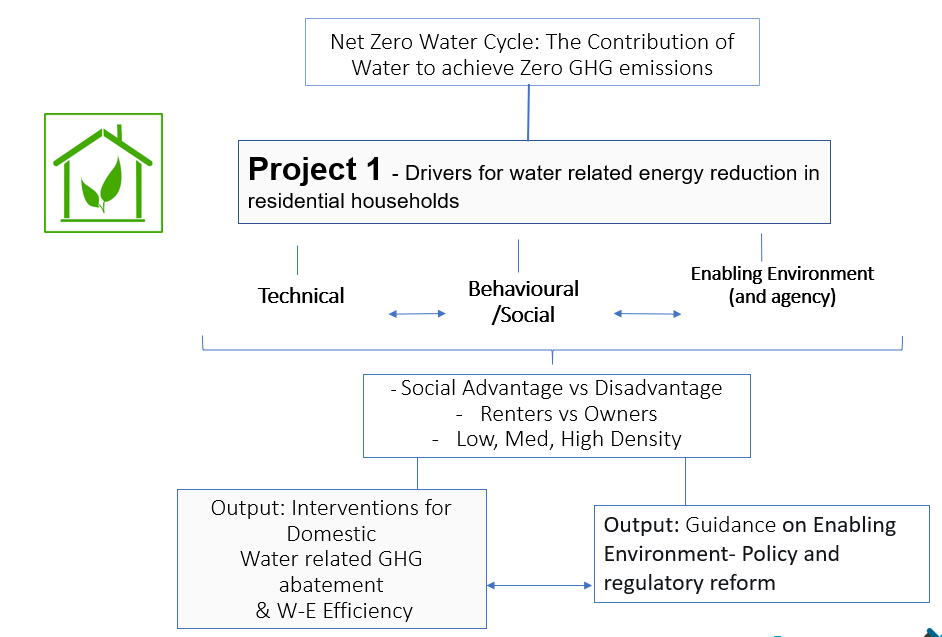The Net Zero Carbon Water Cycle Program (NZCWCP) that is being driven by the Victorian Department of Environment, Land, Water and Planning (DELWP), Monash Sustainable Development Institute (MSDI) and the University of Queensland (UQ) is set within the contexts of the policy obligations on water utilities and the transitions in governance and systems thinking that utilities are making as they play greater roles in delivering broader sustainability outcomes, within the context of a circular economy.
The NZCWCP aims to comprehensively and systematically identify technical, behavioural and enabling factors that lead to sustainable reductions in water related energy (electricity and gas) greenhouse gas (GHG) emissions from the use of water in the entire water cycle across Metropolitan Melbourne. The Program has three inter-related projects.
- Project 1: Residential households. The reduction of water related GHG emissions in residential households, with the use of hot water as a key factor. The project has three phases and Phase 1 has been completed.
- Project 2: Industry and businesses
- Project 3: Urban areas
Phase 1 of Project 1 has been fully funded by DELWP with considerable in-kind support and advice from the Victorian Department of Environment, Land, Water and Planning, Yarra Valley Water (for Reservoir case study) and South East Water (for Frankston case study) and City West Water.
The research components are being undertaken by the Monash Sustainable Development Institute in partnership with The University of Queensland.

We are now exploring funding options for Phase 2 and subsequently Phase 3 of Project 1
Collaborators
- Victorian State Government
- Monash University
- Yarra Valley Water
- City West Water
- South East Water
- Behaviour Works Australia
- C4Net
- St Vincent De Paul
- Australian Energy Council
Project Outcomes
This project contributes to achieve the net-zero GHG emissions target that the Victorian Government and other governments in Australia have committed to achieve by 2050. The Victorian Government’s water strategy, Water for Victoria, requires water corporations to commit to a pathway by 2050 for net-zero emissions and to pledge an interim emission reduction target to be achieved by 2025. This Net Zero Carbon Water Cycle Program aims to achieve an even bigger prize, which is to significantly reduce - towards zero - the amount of GHGs emitted through water use in residential, industry/businesses and urban areas.
Read the full reports
1.2.3 Interventions Pilot Report
1.2.4 Interventions Pilot Behavioural Analysis Report
1.2.5 Enabling Environment Report


